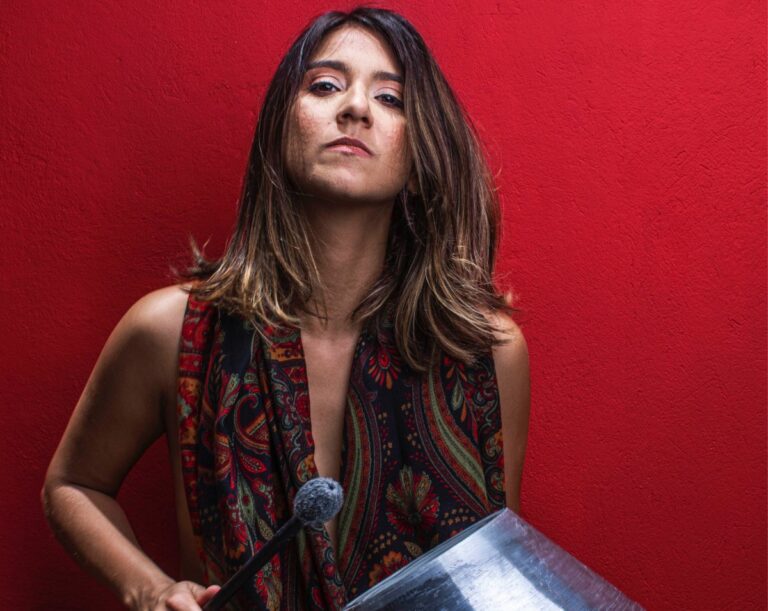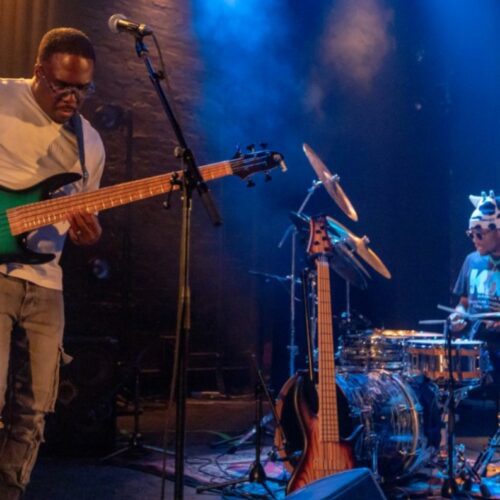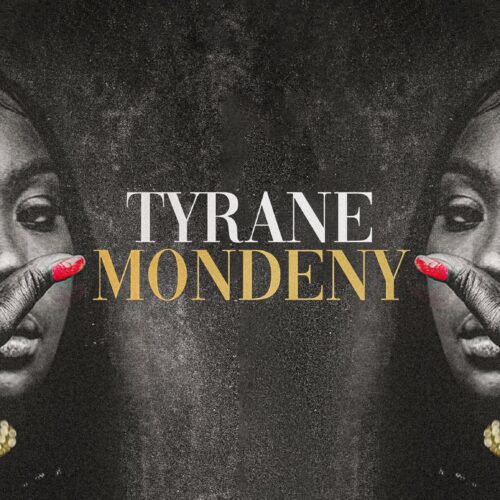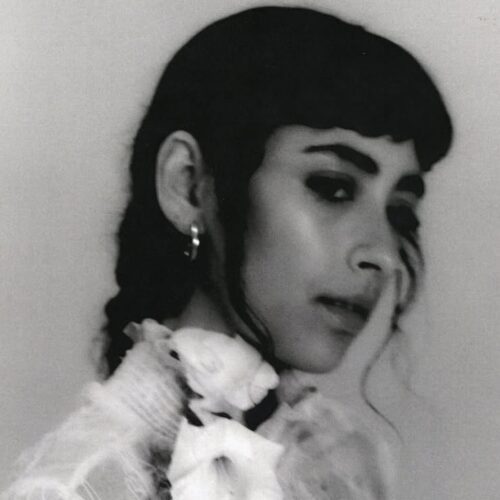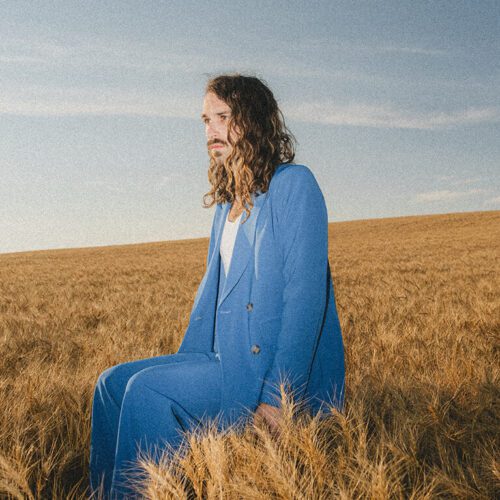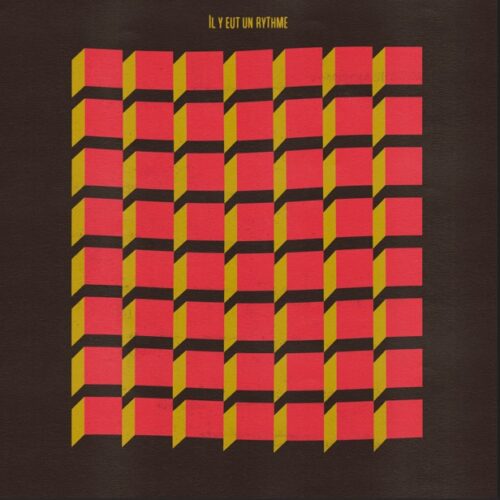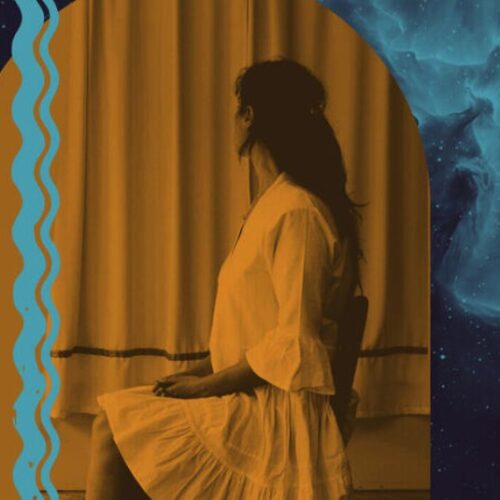Additional Information
The diversity of her art, her talent as a multi-instrumentalist, her idea of the body as a musical instrument and her penchant for collaboration are all reminiscent of the cultural abundance of her native city.
Originally from Recife, Brazil, Montreal-based Lara Klaus is a singer-songwriter, multi-instrumentalist and educator around the world. She is also a member of LADAMA, a group of four women from different countries with whom she has performed at NPR Music’s famous Tiny Desk studio.
Her solo music presents a mixture of styles, borrowing elements from the South to the North of America to Africa, presenting mainly electric and acoustic guitar, as well as different types of Brazilian and African percussion. She participated in the Syli d’Or de la musique du monde des productions Nuits d’Afrique, and is about to play at the Ministère de Montréal as part of the RADAR event which starts this Tuesday.
PAN M 360: You come from the city of Recife, in the northeast of Brazil, and now you live in Montreal. Why did you decide to move here?
LARA KLAUS: It’s interesting, because I have another project that I traveled a lot in North America with, and we came to Montreal in 2018 to participate in the Nuits d’Afrique festival and other festivals in Ontario. That’s how I got to know the city. Then, a year later, my partner decided to come study here. It was a happy coincidence, and it made things easier with my projects. I found that Montreal opened its arms to Brazilian music and to my work.
PAN M 360: You are a percussionist. Is that the instrument that got you started in music?
LARA KLAUS: Actually, the first instrument I learned to play was the keyboard. Then I learned the acoustic guitar, which I studied for a long time. When I discovered percussion and all its cultural events that were very strong in my hometown, it made me want to play it and to start playing drums. After that, it was singing (laughs).
PAN M 360: So singing came last?
LARA KLAUS: I always liked to sing when I was playing guitar by myself, and when I started being a professional musician and working with other artists, my voice was often in the background. At some point, I decided I wanted to sing for myself.
PAN M 360: When you compose, do you start with percussion? Guitar? Is it different every time?
LARA KLAUS: It depends. Sometimes it comes from a rhythmic idea, other times it’s from a sound I hear. But even when I start with the guitar, the percussion is there, because I have a very percussive way of playing. All the elements are close to each other. When I make demos or start producing songs, it’s often guitar and percussion that are present.
PAN M 360: In relation to this process, it’s obvious that you are a fan of collaboration. You are part of the band LADAMA, you have several songs with other artists, especially on your solo album and on your more recent singles. How important is collaboration to you? Is it the basis of everything?
LARA KLAUS: Yes, absolutely. My solo project comes from my collaborative project. I always invite other people to be part of the process with me, whether it’s on stage or in the studio. Since I started playing, I have a need to share, I really don’t have a solitary approach. Of course, I start with a little idea of my own and then I bring it to others. Most of the songs I’ve written have been done with someone else. I think it’s always better to have other people’s ideas and voices, not only because it’s convenient, but also because it’s the symbolic idea of a community. I come from a place where if you play in the street, there will be a band with you, there will be a parade.
PAN M 360: Not only are you an artist, you are also an educator. You teach music and percussion to young people around the world in conferences and workshops. Do you think that teaching music in this way inspires you to explore its limits?
LARA KLAUS: Totally. Teaching is a constant learning experience for me. For me, it goes back to the idea of community and sharing. What we share has meaning, and it allows us to connect with our culture. I find it important for the people I teach that they in turn succeed in connecting with theirs. It’s really about knowing yourself. For a long time I taught people with disabilities. It doesn’t matter what type of person you are, everyone receives and integrates information differently.
PAN M 360: It’s this idea that you can always learn, even from someone who knows almost nothing about your subject.
LARA KLAUS: Right. And teaching is not just about, “Here’s what I do, here’s the rhythm that’s played in my town,” it’s also about, for example, discovering the use of the body as an instrument.
PAN M 360: Speaking of the body as an instrument, in a TED-Talk you gave with your group LADAMA a few years ago, you quote the great Brazilian percussionist Naná Vasconcelos: “The first instrument is the voice, but the best instrument is the body.” Can you talk about what that means to you?
LARA KLAUS: Yes, when I found the quote, I thought, “My God, that’s exactly right!” He was a great master. He traveled the world using his body and percussion as instruments, and led the way in playing with greats like Miles Davis and Herbie Hancock. But, yes, at the core, his idea is that we have everything we need inside of us, and if we have that base, there are no obstacles, no barriers that can stop us.
PAN M 360: Before we leave, we wanted to know if you are working on a new project right now.
LARA KLAUS: Yes, I have a few songs that I plan to release soon. I would love to have something out in time for the summer. I’m always working with different artists, and I have my touring band that I play with and collaborate with, obviously. I have shows planned for June and July!
PAN M 360: Finally, can you tell us what to expect from your show when you perform?
LARA KLAUS: You’ll hear my songs, which I’ve written with different people, and you can expect me to alternate between several instruments that I’ve learned along the way. I just hope to give a light performance that people can feel at the end. It’s always a joy for me to play on a stage, and I want to convey that feeling. Even though I sing in Brazilian Portuguese, I believe that music transcends language, and that I can show the best side of who I am and where I come from.
